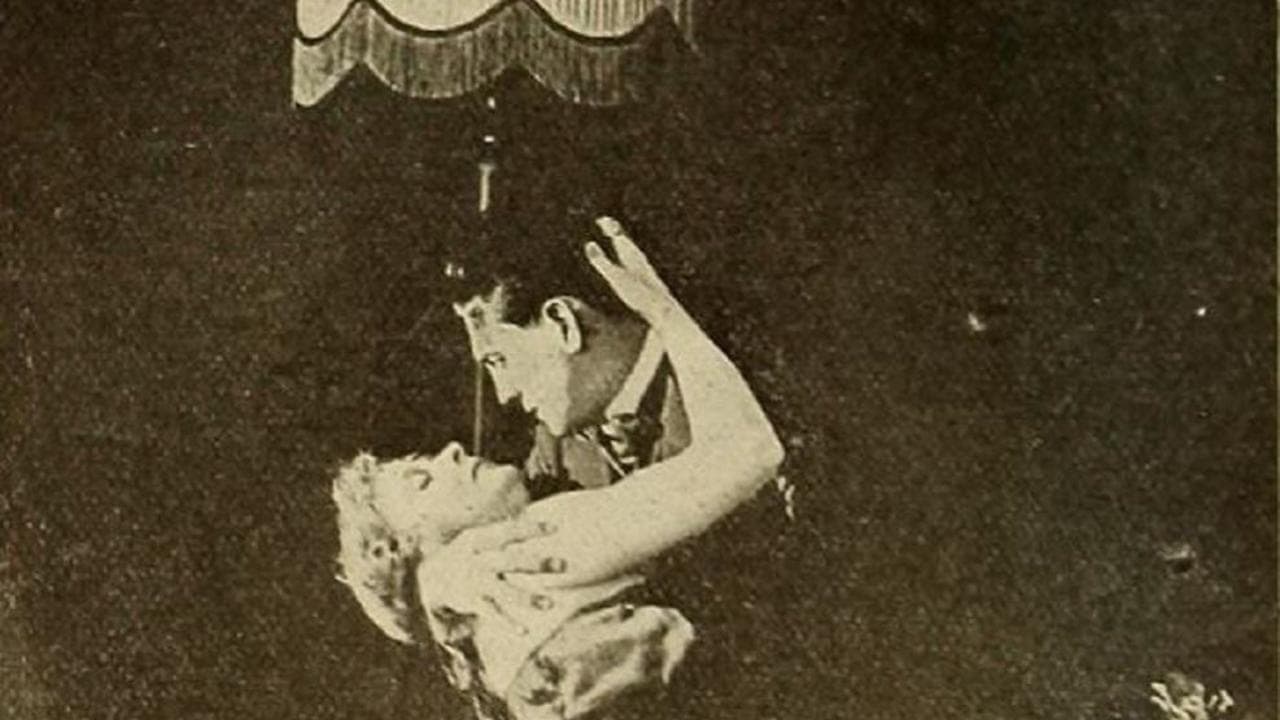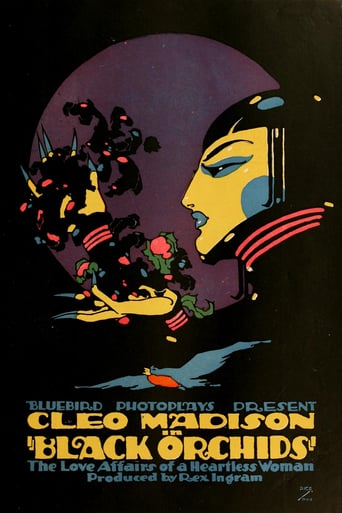

SERIOUSLY. This is what the crap Hollywood still puts out?
... View MoreClever and entertaining enough to recommend even to members of the 1%
... View MoreGood films always raise compelling questions, whether the format is fiction or documentary fact.
... View MoreThe movie really just wants to entertain people.
... View MoreThe author of "Black Orchids," a five-reel romance produced for the Bluebird by Rex Ingram, is a master of his profession, a writer fit to rank with Guy de Maupassant or Edgar Allan Poe. The story has all the unbridled passion of the French author's work and several touches of the uncanny and horrible that is associated with the creator of "The Murder in the Rue Morgue." Love and lust, a fatal duel, murder by poison, insane jealousy that ends in a horrible death for two more of the characters, and a father that succeeds in supplanting his son in the affections of a notorious woman, are the main incidents of a drama which deals almost exclusively with open defiance of all moral law, but which nevertheless holds the spectator's undivided attention to the end of the last reel. The heroine of this carnival of crime is a beautiful woman, a fortune teller who reads the destinies of others by the aid of crystal gazing, but fails to foresee her own finish. She becomes, successively, the mistress of three men, then doubles back to the first of the trio, the young chap whose father has had him sent to the front battle line so that he may not interfere with the elder man's intrigue with the fascinating sibyl. The drama gets its title from a wreath of black orchids which the woman has procured for the tomb of her third lover, after the young soldier fights with and supposes he has killed the gentleman, a wealthy marquis who has - willed the crystal gazer a larger fortune. Although fatally wounded, the nobleman has sufficient strength to plan and execute a terrible revenge on the woman and his rival. He succeeds in trapping them both in an air-tight vault, and then dies upon the threshold, the fourth victim of a violent death. It goes without saying that the one factor that could make such a story acceptable to the greater portion of moving picture patrons is a display of the highest artistic achievement in the drama's production. "Black Orchids" has received just such treatment at the hands of the director, the cameraman and the members of the cast. Rex Ingram has been particularly successful with his part of the work. While no points of the plot are glossed over or left in doubt, there is no undue stress put upon any of the incidents, and the atmosphere which surrounds the entire story belongs to it by right of birth. Artistic settings and effects are of frequent occurrence, and Duke Hayward's camera has lost none of their beauty or weird suggestion. Cleo Madison plays the French Vampire, and Wedgewood Nowell, Howard Crampton and Francis McDonald her trio of lovers. All are excellent selections physically and show fine artistic perception. "Black Orchids" is a tale within a tale, a story written by a celebrated French novelist and told to his capricious daughter, that she may be warned of the harm which lies within the Power of a fickle woman. Heroic treatment, perhaps, but it effects a speedy cure. - The Moving Picture World, January 6, 1917
... View More